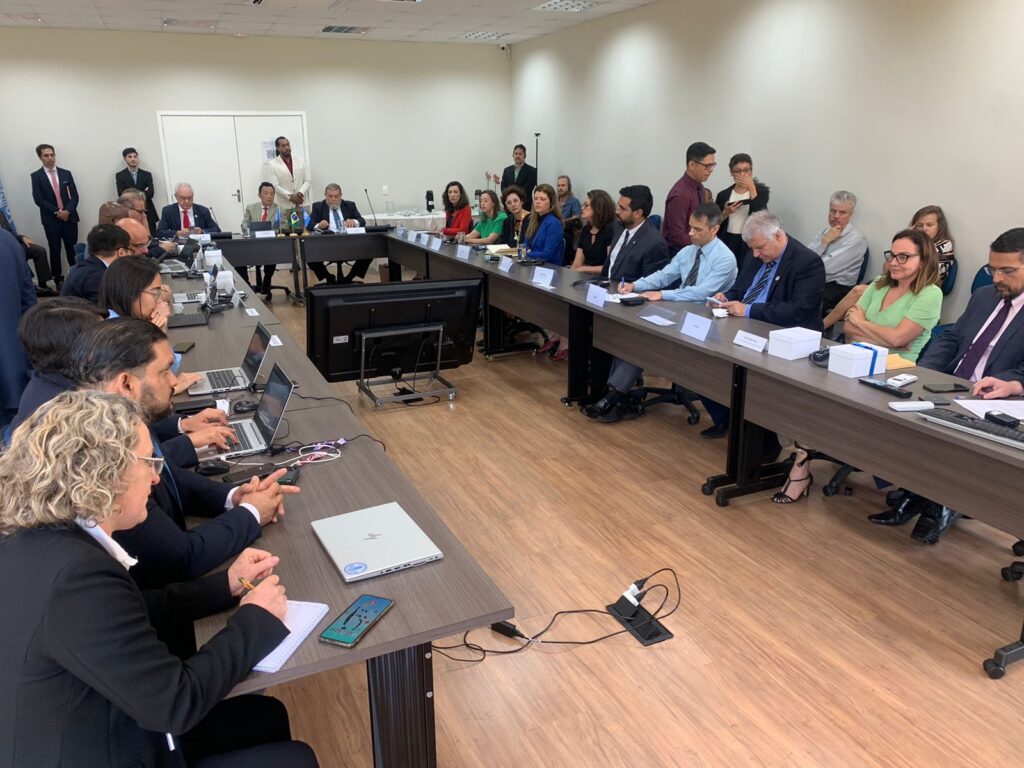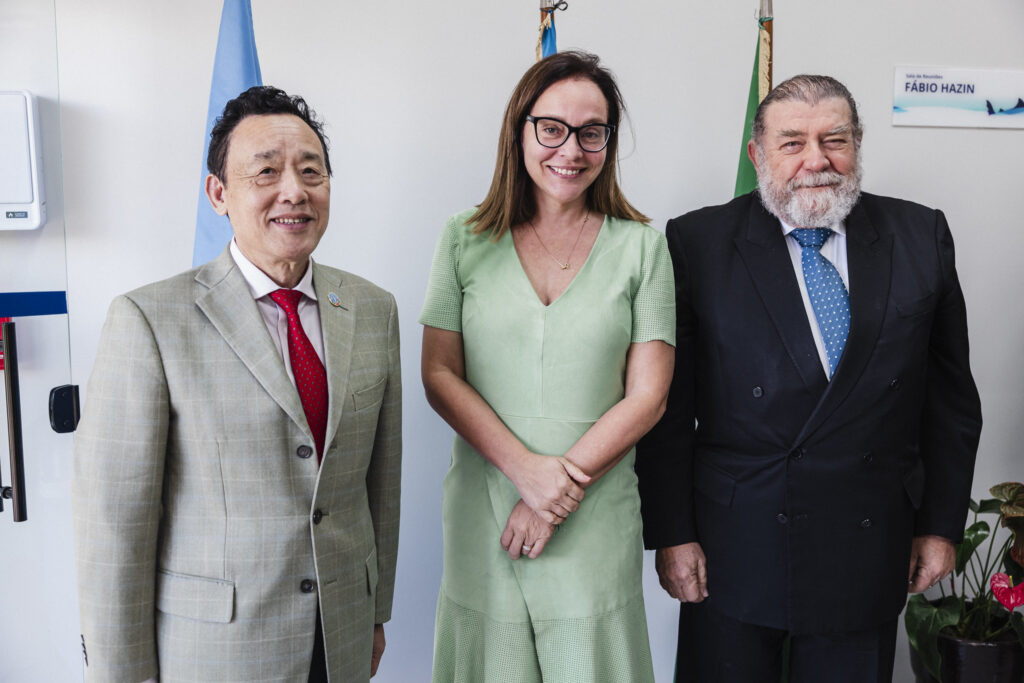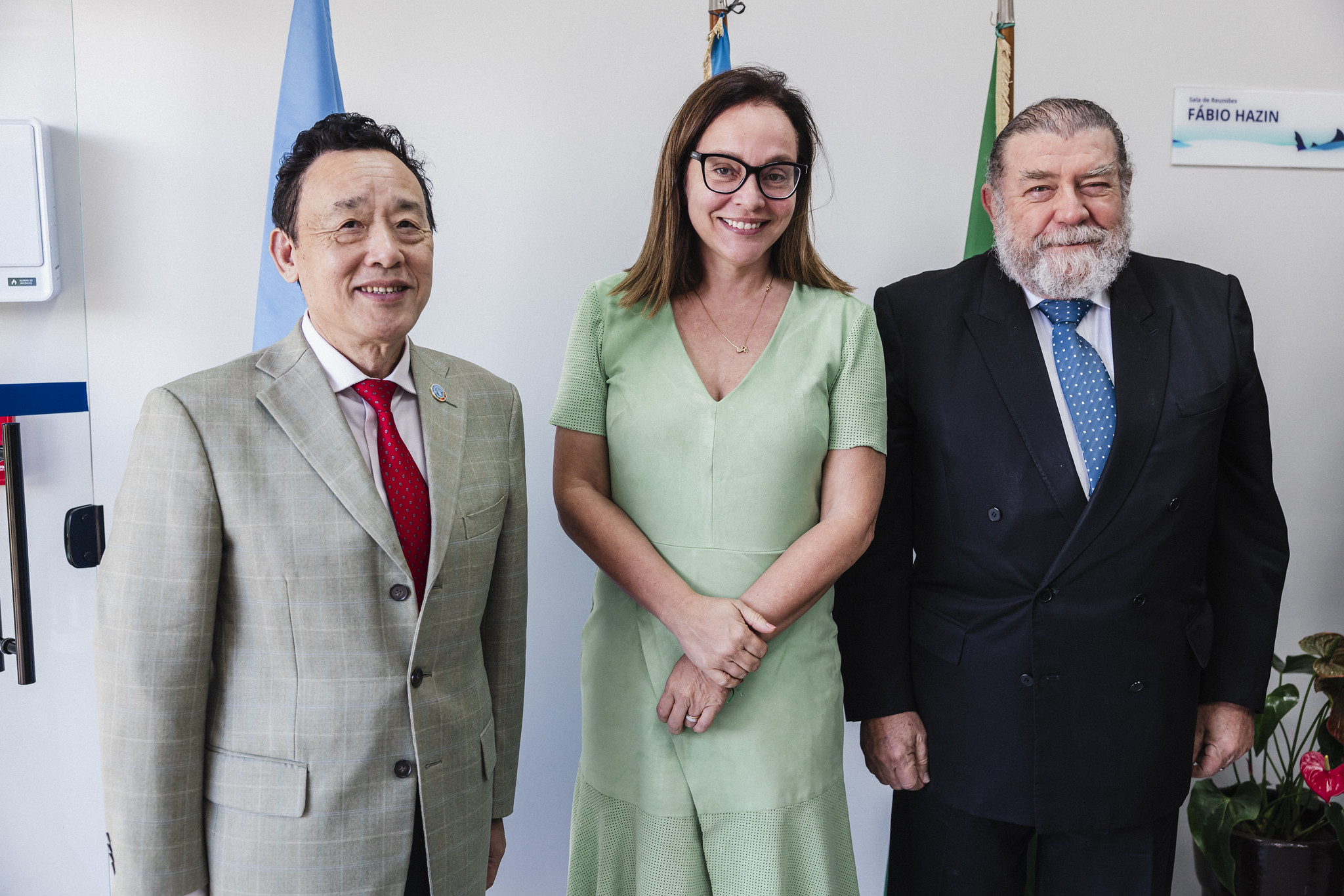Cooperation in school feeding and the Sustainable School Feeding Network (RAES) were among the topics mentioned at the regional meeting.
Brasília, September 13, 2023 – On the date of the United Nations Day for South-South Cooperation, celebrated on September 12, the 4th Advisory Committee Meeting of the Brazil-FAO International Cooperation Program took place in Brasília, Brazil.
The meeting was opened by the Director-General of the Food and Agriculture Organization of the United Nations (FAO), QU Dongyu, and the Director of the Brazilian Cooperation Agency of the Ministry of Foreign Affairs (ABC/MRE), Ambassador Ruy Pereira.
For the past 15 years, the Government of Brazil and FAO have been working towards the sustainable, human, and institutional development of partners in various countries in Latin America and the Caribbean.
The Director-General of FAO commented on the future of the partnership between FAO and the Government of Brazil and emphasized the importance of including new partners, topics, and geographic regions. Regarding the date of South-South Cooperation (CSS), QU Dongyu stated that this type of partnership is based on three fundamental elements: solidarity, equity, and alliances.

He also highlighted the importance of CSS in achieving the United Nations’ Sustainable Development Goals (SDGs). Dongyu also emphasized Brazil’s role in leading an international agenda to combat hunger and poverty. “Let’s look forward. Towards the future. Define how we can cooperate in a complementary way,” he said.
In turn, the Director of ABC/MRE pointed out that the goal of the alliance is to continue contributing “increasingly to the expansion and dissemination of knowledge among partners, in processes of mutual learning.”
Pereira highlighted the key role of Brazilian institutions partnering with the Agency in the implementation of international cooperation projects for development. “It is Brazilian institutions that make this partnership a reality. They are the ones who go to the field,” emphasized the Ambassador, who also stated that “Brazil leads international cooperation actions aimed at economic and social development.”

School Feeding
The Ambassador also said that Brazil is a global reference in school feeding policy, a title obtained through the decision to link the topic with the vision of the Human Right to Adequate Food and the initiative to strengthen the role of family farming as a key element in supplying food to the schools.
Regarding the Sustainable School Feeding Network (RAES) and the work on school feeding that has been developed since 2009, Pereira added that 21 countries have already participated in activities of this network. “These include seminars, exchanges, training, and other important forms of knowledge exchange and best practices to raise the standards and results of their respective national school feeding policies.”
“Brazil’s commitment to supporting other countries in strengthening their school feeding policies is the result of the conviction of the importance of this structuring tool, which promotes the right of all people to adequate and healthy food,” said the ABC Director.
Future Agendas with Cooperating Institutions
During the meeting, Brazilian institutions associated with the implementation of cooperation projects with FAO discussed possible topics on the current agenda of the Brazilian government that could be included in a new phase of the Brazil-FAO International Cooperation Program. Among the main topics are: support for family farming; food supply and marketing; territorial intelligence and management; access to healthy food and school meals; and agro-environmental policies and sustainable development.
In the next months, it is expected that ABC and FAO will meet to design a new logical framework for the cooperation program, i.e., the definition of the methodological approach used in development and management to ensure effective planning, monitoring, and evaluation of project progress and impact.
In the context of the Brazil-FAO International Cooperation Program, the new logical framework may include new topics and partner countries, as well as new dynamics for the continuity of this successful partnership.







